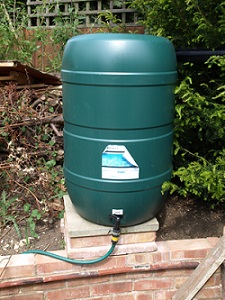Rainwater Harvesting: Another Clever Way to Save Energy
A few weeks ago, we mentioned in our “Tips for a green home” article how important it was to take care of your garden in an environmental-friendly way.
Rainwater harvesting is one of the oldest methods of collecting water for domestic use. It simply involves the collection of water from a surface on which rain falls. It is very simple to do so: you can use a bucket or a tub that you put under the gutter of your property. However think about removing any leaves or dirt manually or install a filter instead. Then you will only need to store this water in rainwater tanks for later use. The water can obviously be used to water plants and lawns but you can also use it to wash the car, motos or children’s bikes.
Why is it important to use rainwater?
First, it is becoming more and more important to store and reuse rainfall because we are faced with increasing prices from water companies and requests for mains water that keep rising. By reusing rainwater, you can thus save hundreds of pounds on water bills. In France, the amount of water used on average per day is 175 litres per head – i.e. a household of four would have an average annual water bill of virtually 382 to 534 (£322 to £450). These prices include the highly priced water in agricultural regions such as Brittany, Normandy and even on the Atlantic coast where water reaches 4.70 (£3.95).
Then, water is scarce and therefore very valuable. Today it is even more important to preserve it as we tend to use more than what is needed. Water regulations during hot summers are intended to reduce the amount of water used by population, but it can only works if everybody is committed to help preserve it.
To finish, rainwater is recommended for its natural softness. Rainwater does not contain chlorine or limestone, and will therefore not damage your plants and flowers. Also, it is better to water your plants during the morning or the evening, as it avoids evaporation of water. Depending on the region you live in, rainwater recovery will be essential: Brittany for example, reaches its rainwater quota whereas Languedoc Roussillon has a smaller precipitation rate.
You can install a rainwater harvesting system and benefit from tax rebate on any cost of installation and equipment. Don’t forget to ask you Mairie to have more information about tax cuts.


